Chengyu Zhou
Supervised Contrastive Learning for Fine-grained Chromosome Recognition
Dec 12, 2023Abstract:Chromosome recognition is an essential task in karyotyping, which plays a vital role in birth defect diagnosis and biomedical research. However, existing classification methods face significant challenges due to the inter-class similarity and intra-class variation of chromosomes. To address this issue, we propose a supervised contrastive learning strategy that is tailored to train model-agnostic deep networks for reliable chromosome classification. This method enables extracting fine-grained chromosomal embeddings in latent space. These embeddings effectively expand inter-class boundaries and reduce intra-class variations, enhancing their distinctiveness in predicting chromosome types. On top of two large-scale chromosome datasets, we comprehensively validate the power of our contrastive learning strategy in boosting cutting-edge deep networks such as Transformers and ResNets. Extensive results demonstrate that it can significantly improve models' generalization performance, with an accuracy improvement up to +4.5%. Codes and pretrained models will be released upon acceptance of this work.
Federated Multilinear Principal Component Analysis with Applications in Prognostics
Dec 11, 2023



Abstract:Multilinear Principal Component Analysis (MPCA) is a widely utilized method for the dimension reduction of tensor data. However, the integration of MPCA into federated learning remains unexplored in existing research. To tackle this gap, this article proposes a Federated Multilinear Principal Component Analysis (FMPCA) method, which enables multiple users to collaboratively reduce the dimension of their tensor data while keeping each user's data local and confidential. The proposed FMPCA method is guaranteed to have the same performance as traditional MPCA. An application of the proposed FMPCA in industrial prognostics is also demonstrated. Simulated data and a real-world data set are used to validate the performance of the proposed method.
A Supervised Tensor Dimension Reduction-Based Prognostics Model for Applications with Incomplete Imaging Data
Jul 22, 2022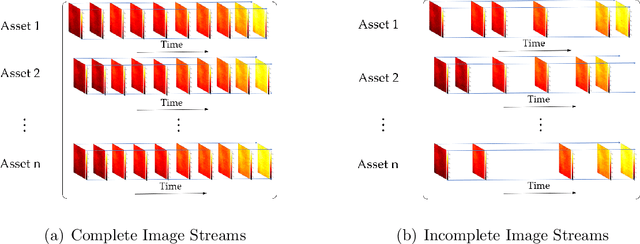

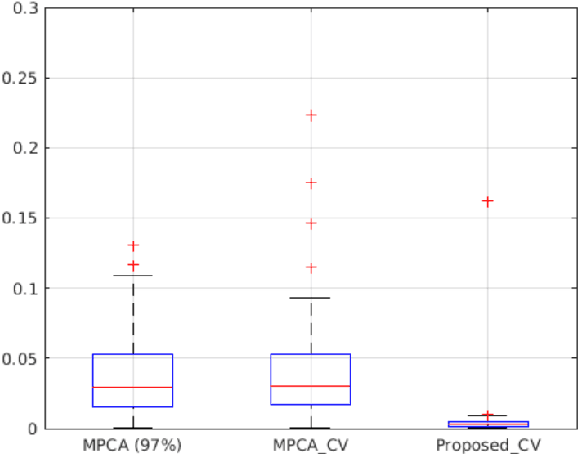
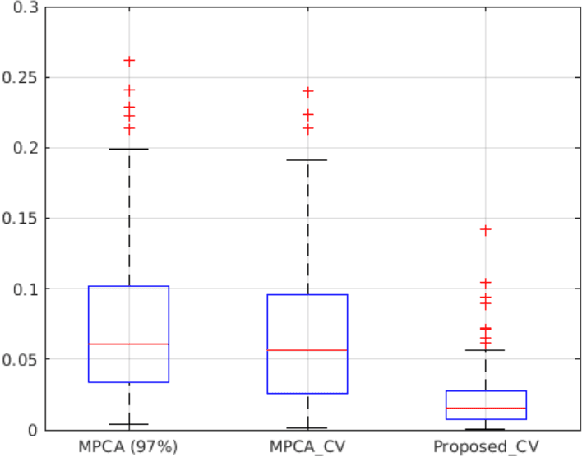
Abstract:This paper proposes a supervised dimension reduction methodology for tensor data which has two advantages over most image-based prognostic models. First, the model does not require tensor data to be complete which expands its application to incomplete data. Second, it utilizes time-to-failure (TTF) to supervise the extraction of low-dimensional features which makes the extracted features more effective for the subsequent prognostic. Besides, an optimization algorithm is proposed for parameter estimation and closed-form solutions are derived under certain distributions.
TraSw: Tracklet-Switch Adversarial Attacks against Multi-Object Tracking
Nov 17, 2021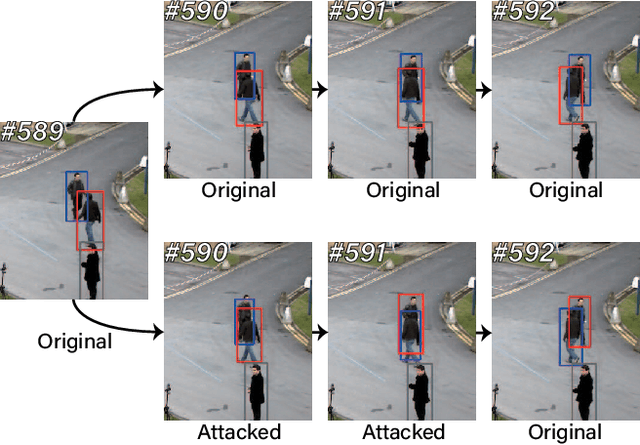
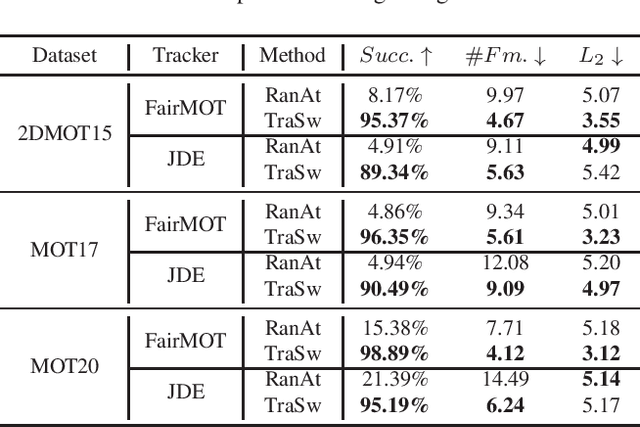
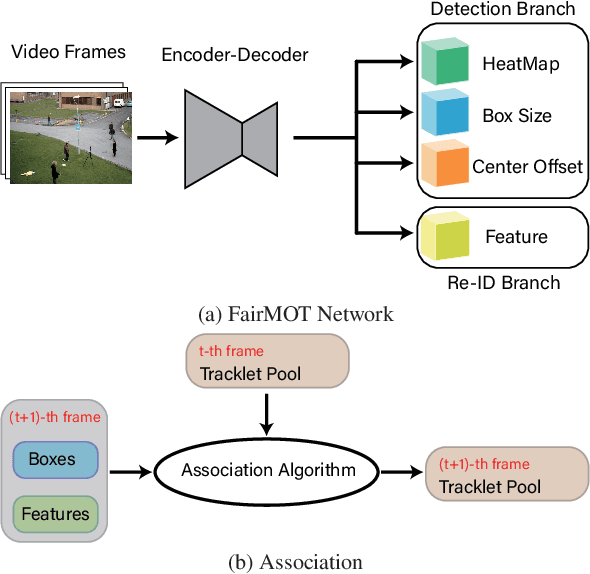

Abstract:Benefiting from the development of Deep Neural Networks, Multi-Object Tracking (MOT) has achieved aggressive progress. Currently, the real-time Joint-Detection-Tracking (JDT) based MOT trackers gain increasing attention and derive many excellent models. However, the robustness of JDT trackers is rarely studied, and it is challenging to attack the MOT system since its mature association algorithms are designed to be robust against errors during tracking. In this work, we analyze the weakness of JDT trackers and propose a novel adversarial attack method, called Tracklet-Switch (TraSw), against the complete tracking pipeline of MOT. Specifically, a push-pull loss and a center leaping optimization are designed to generate adversarial examples for both re-ID feature and object detection. TraSw can fool the tracker to fail to track the targets in the subsequent frames by attacking very few frames. We evaluate our method on the advanced deep trackers (i.e., FairMOT, JDE, ByteTrack) using the MOT-Challenge datasets (i.e., 2DMOT15, MOT17, and MOT20). Experiments show that TraSw can achieve a high success rate of over 95% by attacking only five frames on average for the single-target attack and a reasonably high success rate of over 80% for the multiple-target attack. The code is available at https://github.com/DerryHub/FairMOT-attack .
 Add to Chrome
Add to Chrome Add to Firefox
Add to Firefox Add to Edge
Add to Edge